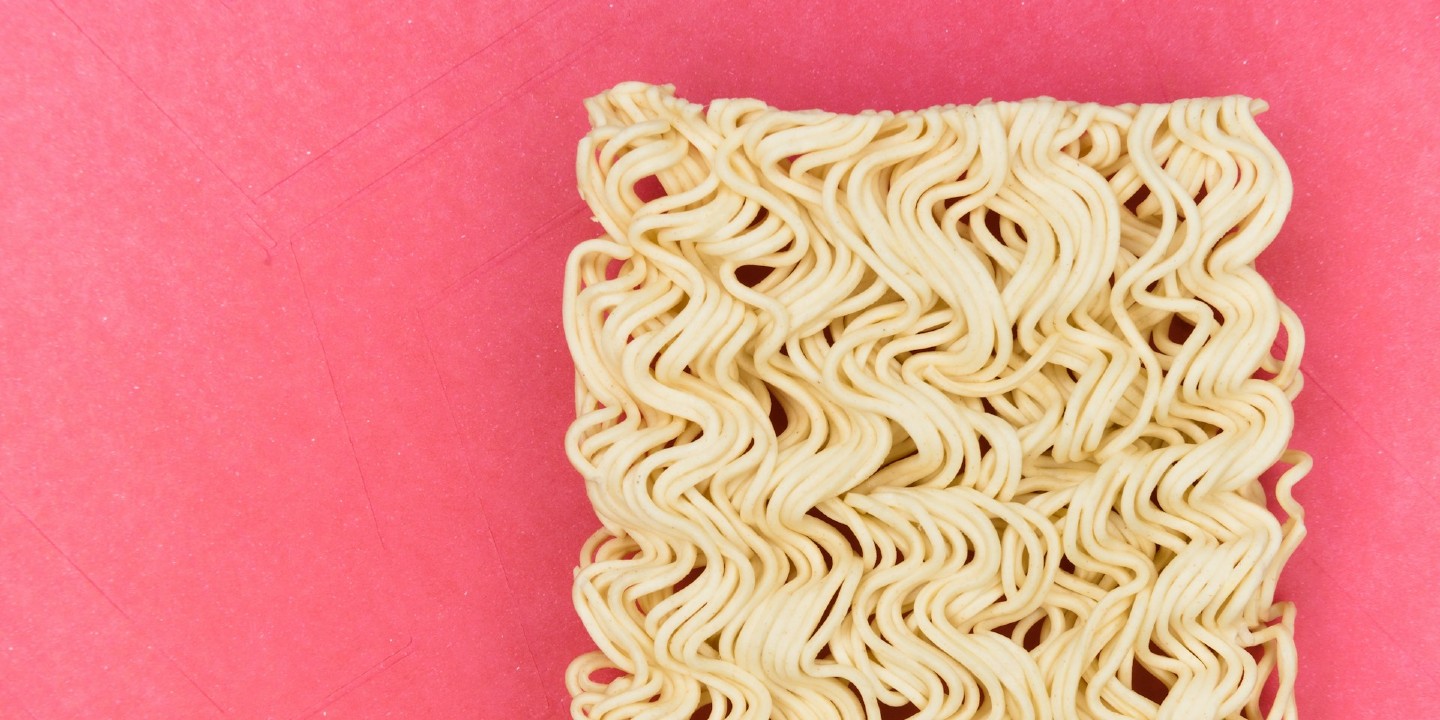Menopause: 10 Foods to Hit "Pause" on & 10 Better Ones to Eat
The Dish on Menopause
Menopause can bring on many difficult changes in the body, from hot flashes and night sweats to mood swings and insomnia. If you're not already mindful of what you put on your plate, now's the time to start, since certain foods can either worsen or help relieve these symptoms. So, what's the dish on menopause? Here are 10 foods you'll need to hit "pause" on—and 10 better choices to enjoy.
1. Spicy Foods
If you've got a knack for spice, we bring bad news: you'll need to shelve away the chilis and peppers while you're going through menopause. The reason is because spicy foods can raise your temperature and cause sweating and flushing, which worsens hot flashes—one of the most common symptoms menopausal women experience.
2. Processed Foods
Weight gain, hot flashes, night sweats, and incontinence are just some of the symptoms that come with menopause. Processed eats—think chips, packaged baked goods, fast food, and fried food—only exacerbate these symptoms, which can make this period of transition harder on you and your body.
3. Alcohol
Alcohol is a tricky one. For some, drinking in moderation may actually be beneficial, and some research shows that it could increase estrogen levels while also reducing bone loss. However, for many others, alcohol may worsen symptoms like hot flashes and night sweats, which can disrupt sleep and lead to insomnia.
4. Caffeine
Do you often start your morning with a steaming cup of Joe? Well, it might be time to put that habit on "pause" during menopause. While the effects of caffeine differ from person to person, with some studies showing that it may help with mood and memory in perimenopausal women, other research shows that caffeine can intensify hot flashes and night sweats in postmenopausal women.
5. Sugary Treats
You'll also want to avoid sugary drinks and desserts during menopause, as having too many sweet treats can not only worsen symptoms but also increase health risks, such as type 2 diabetes. Plus, the drop in estrogen makes it particularly hard for the body to control blood sugar levels, which can lead to insulin resistance.
6. Refined Carbohydrates
It's also important to note that refined carbs, like white bread, pasta, white rice, pastries, and other foods made from processed grains and sugars, can spike blood sugar levels as well. On top of this, high-glycemic index foods can lead to further weight gain and worsen hot flashes.
7. High-Sodium Foods
Just as you'll want to limit your sugar intake, you'll also want to reduce your sodium consumption. Eating too much salt can cause water retention, which leads to bloating and discomfort. Excess salt can spike blood pressure levels as well, which can put strain on your heart and other important organs, including your brain and kidneys.
8. Dairy
While dairy is high in calcium and may help prevent bone loss during menopause, dairy products also contain naturally occurring hormones that may disrupt your endocrine levels and cause hormonal imbalance. Such is the case with many foods, effects may differ from person to person, so it's important to listen and understand your body.
9. Artificial Sweeteners
It's not just regular sugar you'll need to reduce your intake of—you'll want to limit artificial sweeteners as well. Not only might they worsen symptoms and cause hormonal imbalances, but sugar substitutes may also disrupt blood sugar regulation, which can lead to weight gain and insulin resistance.
10. Fatty Meats
You should want to limit your saturated fat intake whether or not you're in menopause, but it's especially important to limit fatty protein during this transition period. A diet that's too high in saturated fat may lead to weight gain and high cholesterol, which can increase your risk of heart disease.
What, then, are some better eats to enjoy during menopause? Read on for 10 healthy picks:
1. Leafy Greens
Leafy greens, like spinach and kale, can be your best friends during menopause. Not only are they full of fiber—which can help with weight management and maintain a healthy gut—they're also rife with nutrients that support bone health and may even promote better sleep.
2. Fruits
Whenever you're feeling peckish during menopause, snack on some fruit. Berries, bananas, apples, and other varieties are loaded with essential vitamins, minerals, and fiber that boost immunity, reduce inflammation, and maintain good gut health. Additionally, fruits high in vitamin C, like oranges and grapefruits, can promote collagen production, helping your skin retain its elasticity even as estrogen levels drop.
3. Fish
Instead of eating fatty red meat, opt for leaner protein choices, like chicken breast and salmon. Fatty fish, in particular, is loaded with omega-3 fatty acids, which can help ease common menopausal symptoms like hot flashes and mood swings.
4. Soy Products
Soy products like tofu, tempeh, and edamame beans are rich in plant-based compounds called phytoestrogens. Phytoestrogens, though weaker than natural estrogen, can mimic its effects in the body, which may help ease menopausal symptoms that hormonal shifts in the body bring.
5. Whole Grains
Whole grains, like oats, quinoa, and brown rice, are also your allies during menopause. Not only are they high in fiber, which helps keep your energy and blood sugar levels steady, but they're also heart-healthy and can reduce the risk of cardiovascular disease, something hormonal changes associated with menopause may raise the risk of.
6. Unsalted Nuts & Seeds
Nuts contain heart-healthy fats, which can also help reduce the risk of cardiovascular disease. Make sure to opt for the unsalted varieties, as you'll want to limit your salt intake during menopause. Seeds, such as flaxseeds and chia seeds, should be regularly included in your diet as well.
7. Avocados
High in monounsaturated fats, avocados are a great fruit to add to your diet to ease menopausal symptoms and manage cholesterol levels, which may help reduce your risk of heart disease. An easy way to incorporate them into your dishes? Start your day with eggs and avocado toast!
8. Low-Fat Dairy
While you may want to be careful of your dairy intake during menopause—and should speak to your doctor about it before you do so—you should opt for low-fat options should you choose to continue eating dairy. This helps ensure you're not consuming too much saturated fat.
9. Legumes
Legumes such as chickpeas, lentils, and beans are great sources of plant-based protein and fiber, keeping you fuller for longer and supporting healthy weight management. Plus, like soy products, some legumes contain phytoestrogens, which can ease menopausal symptoms.
10. Eggs
Eggs are not only high in vitamin D—which supports healthy bones—but are also an excellent source of choline, a nutrient that helps boost cognitive function, which may be particularly helpful during menopause when hormonal shifts affect memory, concentration, and attention. If you ever needed an excuse to eat more eggs, this is it!




























